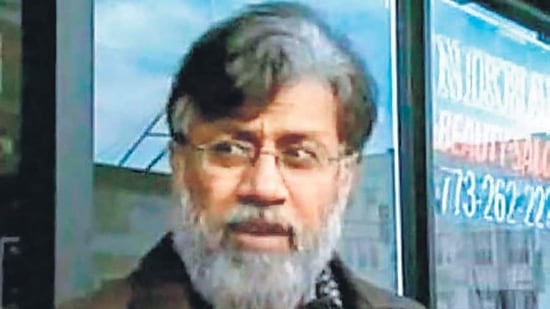
Rana, who holds both Canadian and Pakistani citizenship, was arrested in the U.S. in 2009 on charges related to the Mumbai attacks that resulted in 166 fatalities and injured hundreds. His extradition has been a protracted process, entangled in legal challenges and appeals in U.S. courts. However, the recent ruling by a U.S. court in favor of extradition has renewed hope among Indian officials for a swift transfer. The ruling concluded that sufficient evidence exists to support the charges against him, including conspiracy to provide material support to terrorists.
The U.S. judicial system's decisions are typically influenced by the nature of the charges and the potential risk of human rights violations. Rana’s legal team argued against extradition on grounds of the potential for an unfair trial in India. Nevertheless, U.S. authorities have assured that the Indian legal system is robust enough to ensure a fair trial, which has played a critical role in the court's decision-making process.
In recent years, Indian law enforcement agencies have ramped up efforts to secure the extradition of individuals implicated in terror-related offenses. The case against Rana has been particularly high-profile, involving not just the attacks in Mumbai, but also connections to the Lashkar-e-Taiba, the terrorist organization responsible for the massacre. The extradition of Rana is seen as pivotal, not only for justice for the victims but also in the broader context of counterterrorism efforts in South Asia.
Political leaders and security experts in India have long viewed Rana’s extradition as a necessary step in holding accountable those who orchestrated and facilitated the attacks. The implications of his extradition extend beyond legal ramifications; they serve as a potent reminder of the international community's responsibility in combating terrorism and ensuring that individuals who commit such heinous acts face justice.
As Rana’s case continues to unfold, it is essential to consider the broader implications for U.S.-India relations. The cooperation in this extradition process highlights a commitment to collaborative efforts in addressing terrorism, a shared concern that has increasingly dominated the agendas of both nations. Law enforcement and intelligence-sharing have become focal points of bilateral discussions, especially in light of recent geopolitical tensions in the region.
The timeline for Rana’s extradition remains contingent on the completion of all legal avenues in the U.S. However, observers suggest that the likelihood of his transfer is increasing as court proceedings progress. Both nations have expressed a commitment to follow through with this process, underscoring the importance of addressing the underlying issues of terrorism that continue to plague not only India but also global security.
In addition to the legal proceedings, there is a growing call from various civil society groups and victims’ families for transparency in the extradition process. They emphasize the importance of ensuring that the voices of the victims and their families are heard in the legal proceedings against Rana. This human element underscores the need for justice in a case that has affected countless lives.
Experts on terrorism and law enforcement note that the extradition of Rana could potentially pave the way for further cooperation between the U.S. and India in counter-terrorism initiatives. The ability to bring accused individuals to justice strengthens the credibility of both nations in their fight against terrorism. It also sets a precedent for how similar cases may be handled in the future, providing a framework for collaboration on transnational crime.
Rana's extradition could also reinvigorate discussions surrounding global terrorism, particularly the need for international agreements that streamline extradition processes for terror-related offenses. The complexities involved in such cases often highlight the bureaucratic hurdles that can impede justice, thus fostering a renewed urgency to create efficient mechanisms that facilitate cooperation among nations.
